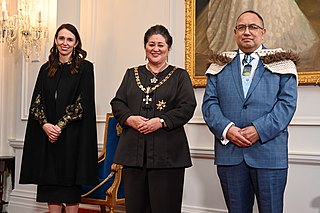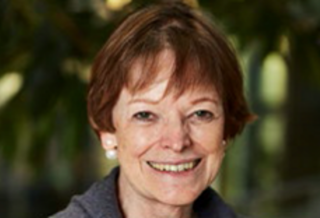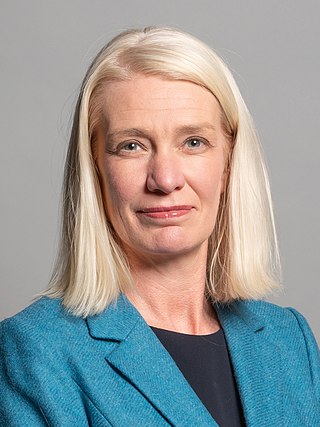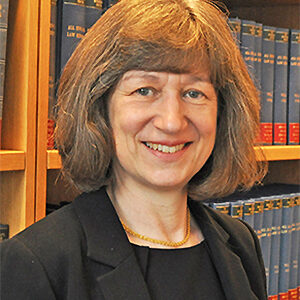Related Research Articles

His Majesty's Home Civil Service, also known as His Majesty's Civil Service, the Home Civil Service, or colloquially as the Civil Service, is the permanent bureaucracy or secretariat of Crown employees that supports His Majesty's Government, which is led by a cabinet of ministers chosen by the Prime Minister of the United Kingdom of Great Britain and Northern Ireland, as well as two of the three devolved administrations: the Scottish Government and the Welsh Government, but not the Northern Ireland Executive.

In the Government of the United Kingdom, the Minister for the Civil Service is responsible for regulations regarding His Majesty's Civil Service, the role of which is to assist the governments of the United Kingdom in formulating and implementing policies. The position is invariably held by the prime minister of the United Kingdom.

The Order of precedence in New Zealand is a guide to the relative seniority of constitutional office holders and certain others, to be followed, as appropriate at State and official functions. The previous order of precedence was revoked and Queen Elizabeth II approved the following Order of Precedence in New Zealand effective 20 September 2018:
- The Monarch of New Zealand.
- The Governor-General or, while acting in the place of the Governor-General, the officer administering the Government
- The Prime Minister
- The Speaker of the House of Representatives
- The Chief Justice
- The Dean of the Diplomatic Corps
- The Deputy Prime Minister
- Ministers of the Crown
- Former Governors-General
- Ambassadors and High Commissioners in New Zealand and Chargés d’Affaires accredited to New Zealand.
- The Leader of the Opposition in the House of Representatives
- Leaders, including co-leaders and joint leaders, of political parties represented in the House of Representatives, other than Ministers of the Crown.
- Members of the House of Representatives. There is no established order of precedence over members of parliament in general, although each party has its internal ranking.
- Judges of the Supreme Court of New Zealand, the Court of Appeal and the High Court of New Zealand.
- Former Prime Ministers, former Speakers of the House of Representatives, former Chief Justices, and members of the Privy Council.
- Mayors of territorial authorities and chairpersons of regional councils, while in their own cities, districts and regions. In 1989, boroughs and counties were amalgamated into district councils. District mayors, and the Chatham Islands mayor could expect to be accorded this same precedence.
- The Public Service Commissioner, Chief of Defence Force, Commissioner of Police, and Officers of Parliament .
- The Solicitor-General, Clerk of the House of Representatives, and Clerk of the Executive Council when attending a function involving the exercise of the position’s specific responsibilities.
- Chief executives of public service and non-public service departments.
- The Vice Chief of Defence Force, and Chiefs of Navy, Army and Air Force, and other statutory office holders.
- Consuls-General and Consuls of countries without diplomatic representation in New Zealand.
- Members of New Zealand and British orders, and holders of decorations and medals in accordance with the Order of Wear in New Zealand.
The House of Lords Appointments Commission (HOLAC) is an independent advisory non-departmental public body in the United Kingdom with oversight of some aspects of the Peerage of the United Kingdom. It has two roles:
Irene Tordoff Fritchie, Baroness Fritchie, DBE, known as Rennie Fritchie, is a British crossbench peer.
The Committee on Standards in Public Life(CSPL) is an advisory non-departmental public body of the United Kingdom Government, established by John Major in 1994 to advise the Prime Minister on ethical standards of public life. It promotes a code of conduct called the Seven Principles of Public Life, also known as the Nolan principles after the first chairman of the committee, Lord Nolan.

Dame Katharine Mary Barker is a British economist. She is principally noted for her role at the Bank of England and for advising the British government on social issues such as housing and health care.
A Welsh Government sponsored body (WGSB) is a non-departmental public body directly funded by the Welsh Government. Under the Government of Wales Act 1998 the bodies were sponsored by the National Assembly for Wales and were known as an Assembly sponsored public body, and this was changed by the Schedule 3 of the Wales Act 2017 which amended the Government of Wales Act 2006.
Sir Peter John Robert Riddell is a British journalist and author. He worked for the Financial Times from 1970 to 1991. From April 2016 to September 2021 he served as the British government's Commissioner for Public Appointments, and is the former director of the Institute for Government.
The Civil Service Commission regulates recruitment to the United Kingdom Civil Service, providing assurance that appointments are on merit after fair and open competition, and hears appeals under the Civil Service Code. The commission is independent of government and the Civil Service.
Sir John Joseph Sheil is a retired Northern Irish judge. He was a High Court Judge of Northern Ireland from 1989 to 2004, and a Lord Justice of Appeal of Northern Ireland from 2004 to 2007.

Dame Glenys Jean Stacey DBE is a solicitor and civil servant serving as chair of the Office for Environmental Protection from February 2021. She was Chief Executive and Chief Regulator of Ofqual, acting in the post from August to December 2020, and previously from 2012 to 2016. Stacey also served as Her Majesty's Chief Inspector of Probation and led HM Inspectorate of Probation for England and Wales from 2016 and 2019.
Dame Julia Wendy Macur, DBE, known as The Rt Hon Lady Justice Macur, is a British judge of the Court of Appeal of England and Wales. Between April 2017 and December 2019, she was the Senior Presiding Judge for England and Wales.
The Senior Presiding Judge for England and Wales is a member of the Court of Appeal appointed by the Lord Chief Justice to supervise the Presiding Judges for the various judicial circuits of England and Wales. The Senior Presiding Judge is responsible for deployment and personnel issues for all circuits and acts as a "general point of liaison" for the courts, judiciary and Government.
The Honours Committee is a committee within the Cabinet Office of the Government of the United Kingdom formed to review nominations for national honours for merit, exceptional achievement or service. Twice yearly the Honours Committee submits formal recommendations for the British monarch's New Years and Birthday Honours. Members of the Honours Committee—which comprises a main committee and nine subcommittees in speciality areas—research and vet nominations for national awards, including knighthoods and the Order of the British Empire.

Dame Amanda Anne Milling is a British politician serving as Member of Parliament (MP) for Cannock Chase since the 2015 general election. She served as Minister without Portfolio in the UK cabinet and, alongside Ben Elliot, as Co-Chairman of the Conservative Party from February 2020 to September 2021. She also served as Minister of State for Asia and the Middle East from September 2021 to September 2022. She previously worked in market research.

The office of the Victims' Commissioner for England and Wales is an organization of the government of the United Kingdom. The role of the Victims' Commissioner is to promote the interests of victims and witnesses of crime, encourage good practice in their treatment, and regularly review the Code of Practice for Victims which sets out the services victims can expect to receive.

Dame Sarah Valerie Falk, is a British Court of Appeal judge. She was previously a High Court judge and senior Judicial Appointments Commissioner.
Dame Karen Margaret Steyn, DBE is a British High Court judge.
References
- ↑ "Public Appointments Commissioner Order in Council 2016" (PDF).
- ↑ "Governance Code for Public Appointments - GOV.UK". www.gov.uk. Retrieved 18 October 2017.
- ↑ "Annual reports - Commissioner for Public Appointments". Commissioner for Public Appointments. Retrieved 18 October 2017.
- 1 2 "Commissioner for Public Appointments appointed: Peter Riddell - Press releases - GOV.UK". www.gov.uk. Retrieved 30 April 2016.
- ↑ "History of the Commissioner's role - The Commissioner for Public Appointments". publicappointmentscommissioner.independent.gov.uk. Archived from the original on 8 April 2016. Retrieved 30 April 2016.
- ↑ 10 Downing Street (6 February 2002). "Number10.gov.uk : Dame Rennie Fritchie re-appointed as Commissioner for Public Appointments". number10.gov.uk. Archived from the original on 8 December 2009. Retrieved 30 April 2016.
{{cite web}}: CS1 maint: numeric names: authors list (link) - ↑ "Employment lawyer named as new Commissioner for Public Appointments - Personnel Today". Personnel Today. 22 December 2005. Retrieved 30 April 2016.
- ↑ "Dual Civil Service Commissioner and Commissioner for Public Appointments". UK Cabinet Office. 21 December 2010. Retrieved 3 March 2011.
- ↑ "About the Commissioner". Commissioner for Public Appointments. Retrieved 22 July 2022.